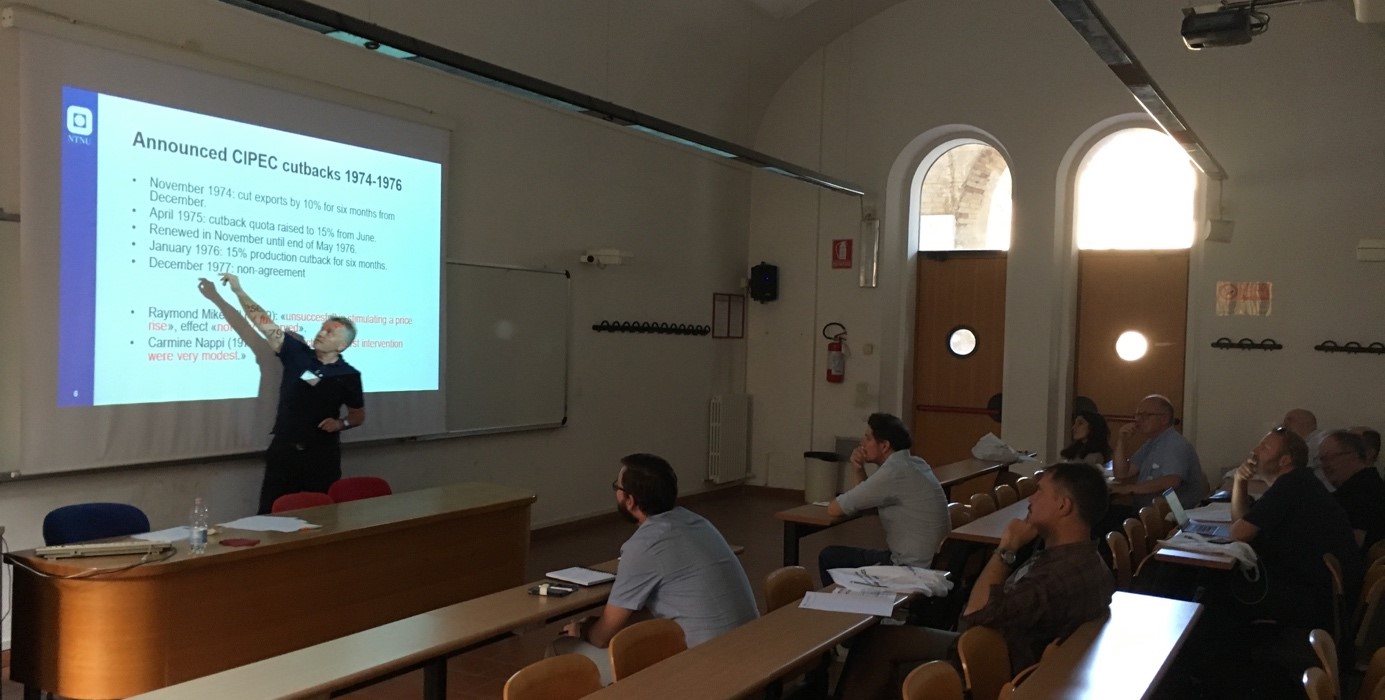The global linkages of Central African copper: EBHA congress in Ancona
EBHA's annual congress was held in Ancona in early September, and this year's topic was The Firm and the Sea: Chains, Flows and Connections. The organizers invited papers on the maritime links of firms, clusters, networks and global value chains. Challenging the ocean, Fate of nations participated with two presentations and a chair in a land-locked session on regulating and managing copper. Our session dealt with the global and regional linkages of Central African copper, as well as attempts at producer collaboration. The papers complemented each other, with the perspectives of a foreign-owned company in the Belgian Congo, the newly independent Zambian state, and finally western consumer nations.
Robrecht Declercq from Ghent University started in Katanga, and gave a transnational view on the operations of the Union Minière on the Congolese side of the Copperbelt, until 1939. Cooperation with American producers continued in spite of efforts to "nationalise" the Belgian operations, to reduce transatlantic dependence. Across the border from Katanga, Ingeborg Guldal discussed Zambia's ambitions in the early phase of the Intergovernmental Council for Copper Exporting Countries (CIPEC), in the late 1960s. Producer collaboration with the Global South was complicated by a shortage of administrative resources in recently independent Zambia, as well as strained relations with the copper conglomerates and fellow CIPEC country Chile. Reaching out to the Congo, the Zambian government instead argued for increased regional cooperation. Hans Otto Frøland finally explored whether Western consumer nations regarded CIPEC as a political risk. He argued that the organisation's control of world copper supplies was perceived as tenuous, and that their dependence on export earnings and internal differences was recognised by the industrialised consumer countries. Nevertheless, the very idea of such an organisation was initially seen as a threat.
All in all, we enjoyed the conference with business history perspectives from value chains across oceans, ports and hinterlands. Overlooking the Adriatic Sea, late summer in the town of Ancona wasn't bad either.

